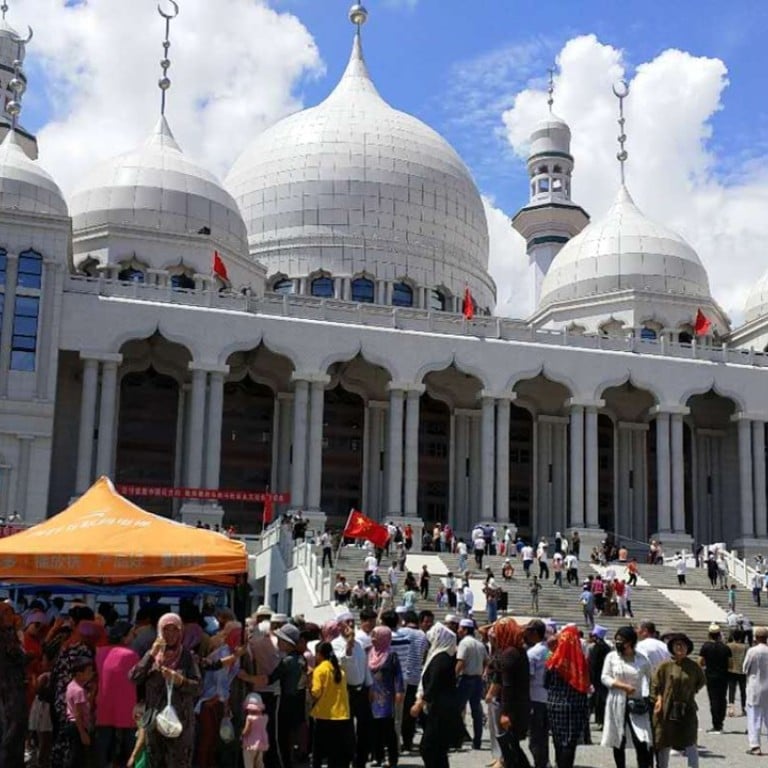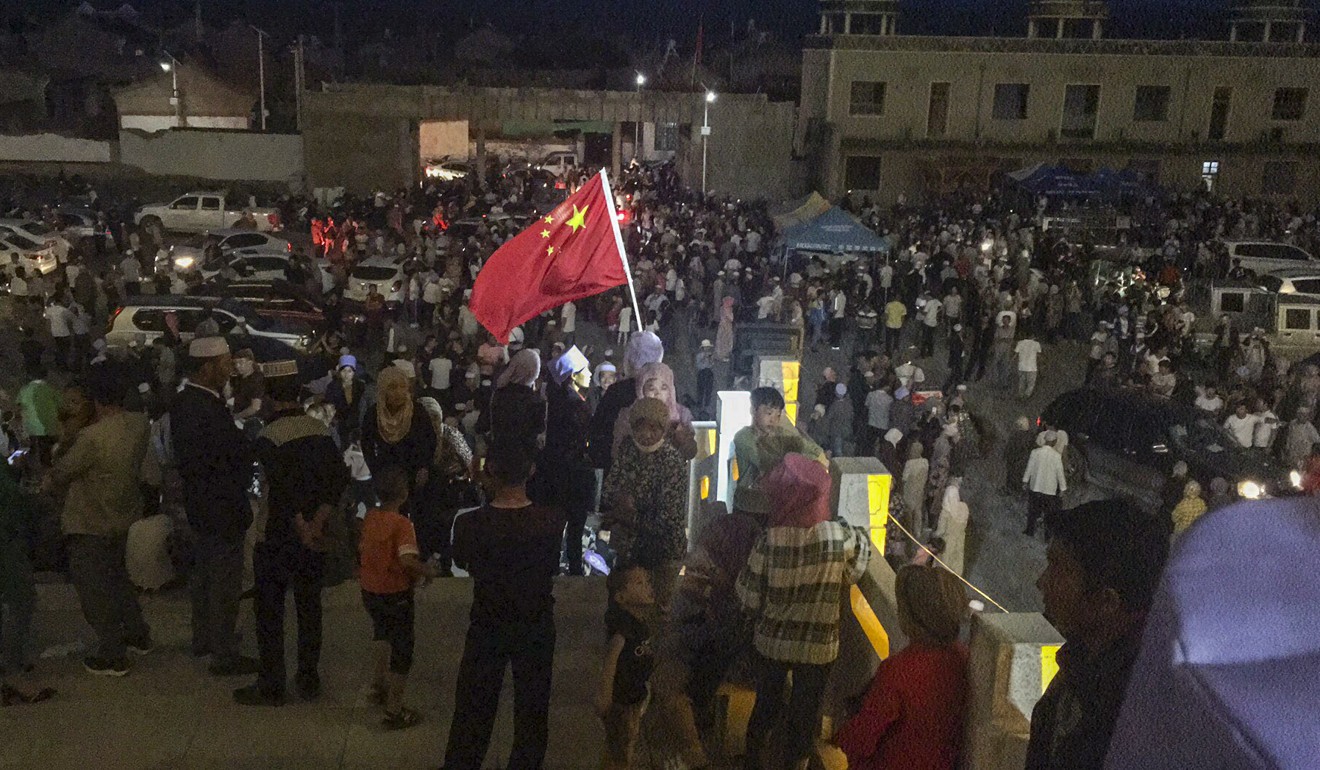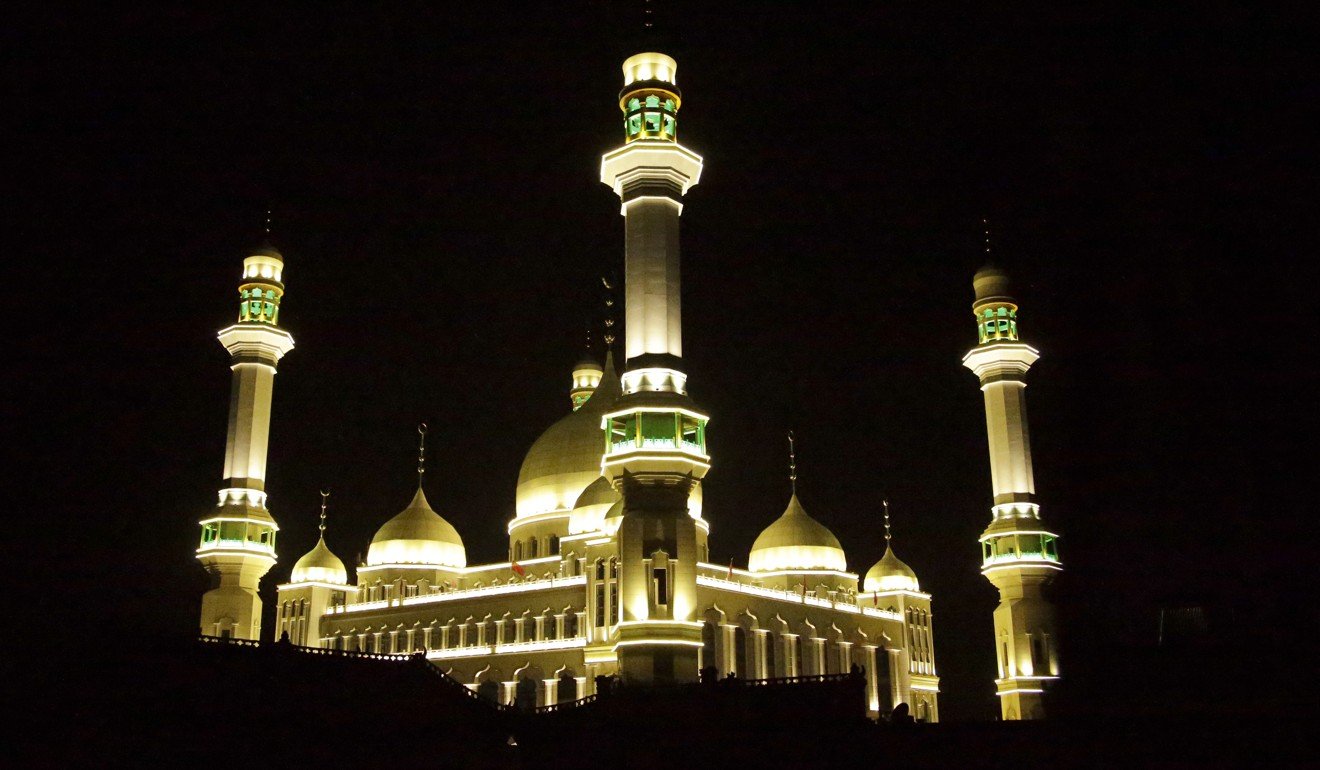
Chinese Hui mosque protest ends after authorities promise to consult community
Talks on changes to new place of worship to begin after major Islamic festival next week, residents say
A three-day protest by thousands of ethnic Hui Muslims in northwest China came to a quiet end over the weekend, after authorities held off on demolition of a new mosque and promised not to alter its appearance without community approval.
The peaceful gathering at the Weizhou Grand Mosque, which started on Thursday over a government ultimatum to demolish the building, was by far the biggest show of opposition by the Hui against a sweeping Communist Party push to “Sinicise religion”, including Islam.
China delays plan to demolish Weizhou Grand Mosque after protest by Hui Muslims
Residents in Weizhou, a Hui town of about 20,000 people in the northern Ningxia region on the Yellow River floodplain, said that life was returning to normal after assurances were given on Saturday afternoon by the chief of Tongxin county, which governs Weizhou.
“It’s all calmed down now,” a resident who witnessed the protest said. “The county’s party chief has told everyone that the mosque is to be revamped, not demolished, and the reconstruction will only take place after everyone is happy [with the renovation plan].”
A business owner said: “[The county chief] said we should first celebrate Eid al-Adha, and negotiations over the reconstruction could resume afterwards.” Eid al-Adha, known as “festival of sacrifice”, is one of the two major annual Islamic festivals and starts next week, running over four days.
Internet services also resumed in the town on Monday afternoon after two days of outages, and prayer services at the mosque were again being held as usual, residents said.
Even so, some people in the town were reluctant to talk when contacted by the South China Morning Post.
Two hung up the phone immediately when asked about the mosque, while another said she “knew nothing about it”.
Protest by Chinese Hui Muslims at Weizhou Grand Mosque goes on as sides seek compromise
A woman who answered a call to the office of Tongxin’s party committee confirmed that the mosque was going to be overhauled, but said she did not know any specific plans. The party chief was in the regional capital of Yinchuan for a meeting on Tuesday and could not be reached, she said.
The Weizhou government had originally demanded that the mosque, which was completed only last year to replace an older centre, be torn down by Friday, saying it had not been granted the necessary planning and construction permits.
That was despite the government appearing to support its construction in 2015, according to an official document seen by the Post.

In a letter addressed to the county’s religious affairs bureau, the Weizhou government then proposed that the older mosque be rebuilt. It said county inspectors had found a number of “safety hazards” in 2014, including inadequate safeguards against earthquakes and fire.
The previous mosque was built in 1979 to replace Weizhou’s 600-year-old Chinese-style mosque, which was destroyed during the Cultural Revolution.
“To let the Hui people in Weizhou bathe under the party’s sunshine and worship Allah in peace, and for society to develop harmoniously, [we] now request the reconstruction of the Weizhou Grand Mosque,” the government said in the letter.
Chinese Hui Muslim protest forces authorities to halt plan to demolish Weizhou Grand Mosque
Residents in Weizhou said they were happy with the result of last week’s last-ditch effort to defend the new mosque, although there was still uncertainty about the result of the “rectification plan”.
The government had earlier proposed toning down the mosque’s “Arab style” by removing eight of its nine domes, an idea rejected by the community.
“The domes should be kept together, because they’re a whole and that’s their style,” the business owner said.

Domes have been removed from some smaller mosques around Weizhou in recent months while Islamic icons and Arabic signs have also been removed from secular buildings across Ningxia.
The authorities’ heavy-handed approach in Ningxia is seen by some critics as an extension of the harsh religious policies in place in Xinjiang, a region in the country’s far west that is home to the Muslim Uygur ethnic minority.


